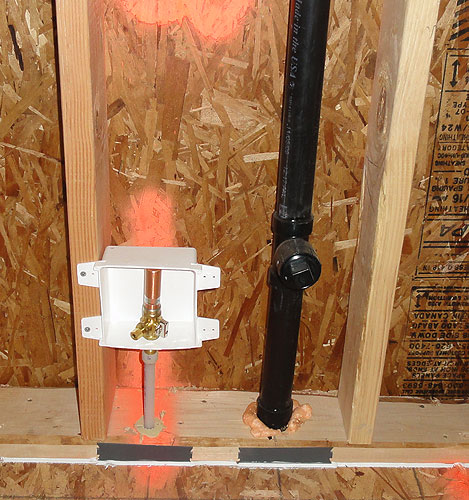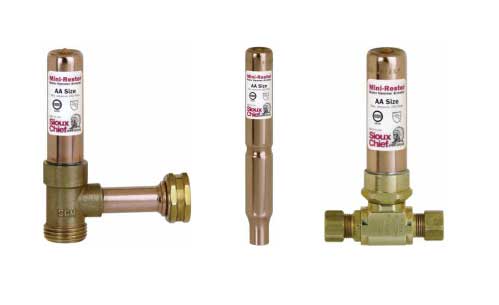Hi,
I could use some insight on a problem that has been making my life hell. I have lived in my current condo for roughly a year, and about 6 weeks ago, a very loud rattling, banging, hammering sound started to emerge from the
wall above the bathtub whenever any of my upper or lower neighbors use their sink, tub, shower faucets, wash their clothes or flush their toilets. I don't hear the noise when the water is running from my own sink, tub or shower faucets. However, I can now also hear the noise when my washing machine initially fills with water, or when my toilet finishes refilling (though in this case the rattle is relatively muted), or if I really abruptly jerk my tub
faucet on and off. This problem just developed out of the blue over a month ago. Hundreds of times a day a loud series of 2 or 3 banging noises when others use their bathrooms. The sound seems to be coming from the area where the bathtub faucet is located. Apparently no one else has this problem where i live. If it's relevant, I seldom use my tub or shower as I traditionally shower at the gym. The person who owned the place before me had renovations done 6 years ago and moved the pipe.
The building maintenance department thinks this 6 week old problem is because of the renovations done years ago.
They think a pipe has come loose and needs to be anchored properly. Because the contractor hired by the previous owner moved the pipe so that it runs down beside the bottom of the tub and then up to the adjacent shower stall, it would require pulling out tiles and perhaps even pulling out the tub to access the pipe. They say this would be my responsibility.
Any thoughts on what is causing this noise ? Do you think it is likely a loose pipe ? Before I go ahead with this messy and potentially costly exercise, I wanted to ask if the problem could be caused by anything else ? Could it be
as simple as a loose washer or loose part in the faucet ? Or might it have anything to do with a air trapped somewhere ? Or could it have something to do with too much water pressure somewhere ? Any other potential explanations ?
My fear is that I will pay a lot of money for a plumber to tear things apart to find out that the problem can't be fixed on my end.
Thanks a lot and sorry for the long post.
I could use some insight on a problem that has been making my life hell. I have lived in my current condo for roughly a year, and about 6 weeks ago, a very loud rattling, banging, hammering sound started to emerge from the
wall above the bathtub whenever any of my upper or lower neighbors use their sink, tub, shower faucets, wash their clothes or flush their toilets. I don't hear the noise when the water is running from my own sink, tub or shower faucets. However, I can now also hear the noise when my washing machine initially fills with water, or when my toilet finishes refilling (though in this case the rattle is relatively muted), or if I really abruptly jerk my tub
faucet on and off. This problem just developed out of the blue over a month ago. Hundreds of times a day a loud series of 2 or 3 banging noises when others use their bathrooms. The sound seems to be coming from the area where the bathtub faucet is located. Apparently no one else has this problem where i live. If it's relevant, I seldom use my tub or shower as I traditionally shower at the gym. The person who owned the place before me had renovations done 6 years ago and moved the pipe.
The building maintenance department thinks this 6 week old problem is because of the renovations done years ago.
They think a pipe has come loose and needs to be anchored properly. Because the contractor hired by the previous owner moved the pipe so that it runs down beside the bottom of the tub and then up to the adjacent shower stall, it would require pulling out tiles and perhaps even pulling out the tub to access the pipe. They say this would be my responsibility.
Any thoughts on what is causing this noise ? Do you think it is likely a loose pipe ? Before I go ahead with this messy and potentially costly exercise, I wanted to ask if the problem could be caused by anything else ? Could it be
as simple as a loose washer or loose part in the faucet ? Or might it have anything to do with a air trapped somewhere ? Or could it have something to do with too much water pressure somewhere ? Any other potential explanations ?
My fear is that I will pay a lot of money for a plumber to tear things apart to find out that the problem can't be fixed on my end.
Thanks a lot and sorry for the long post.


